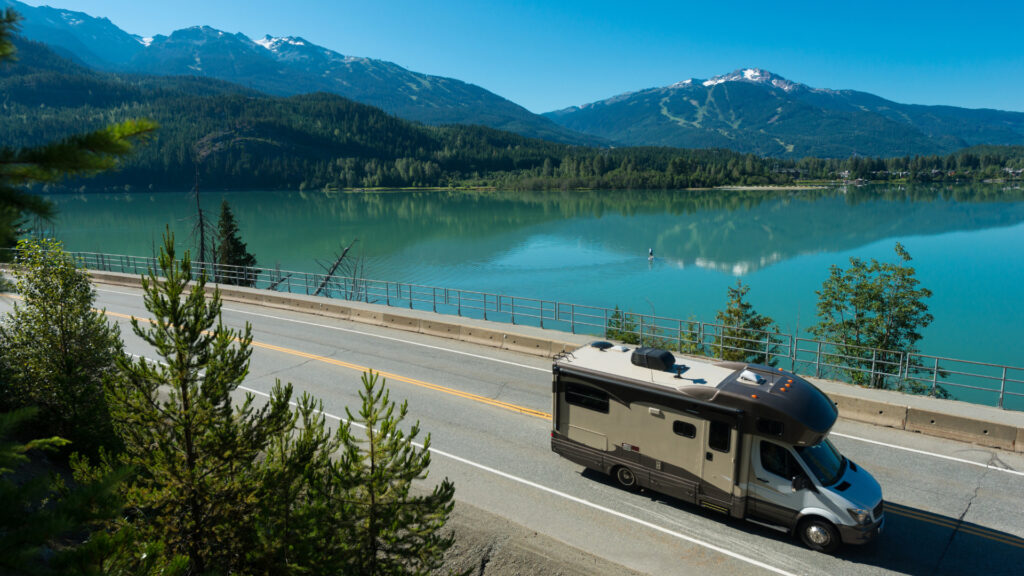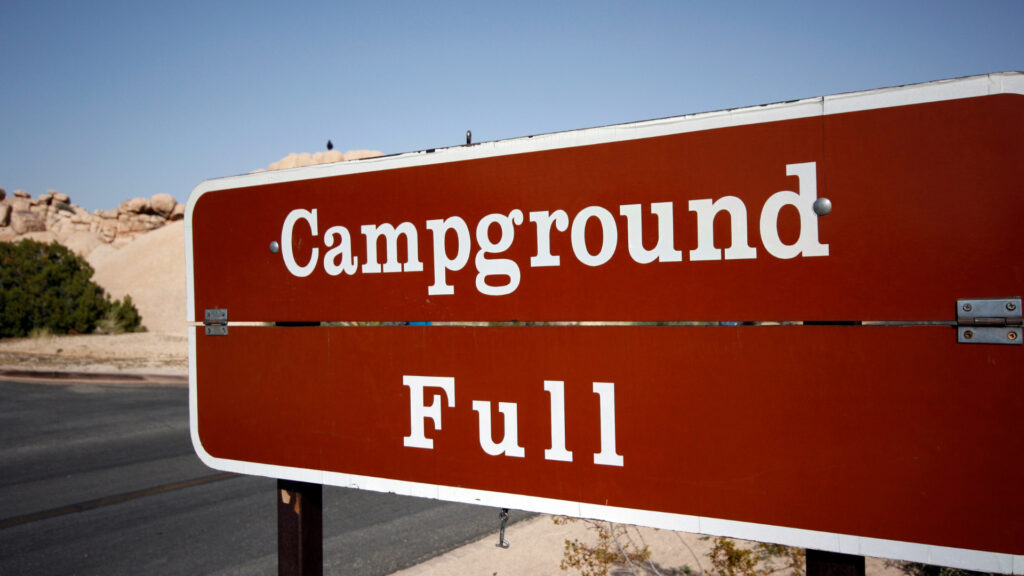Table of Contents Show
RV sales are through the roof, and the industry has been doing remarkably well in recent years.
However, not everybody thinks the future looks bright for RV manufacturers and the rest of the RV industry.
A former journalist even went as far as to create a large document titled “RV Industry Death Spiral” that revealed a not-so-positive forecast.
So is the “RV Industry Death Spiral” prediction coming true, or is it a bunch of nonsense? Let’s see!
Who Is Greg Gerber?
Greg Gerber is a former journalist that spent a tremendous amount of time and energy covering all aspects of the RV industry. In 2009, Gerber started focusing his journalist expertise on the RV industry.
He created RV Daily Report in 2009, started a podcast in 2014, sold RV Daily Report in 2017, and retook it. He ultimately decided to shut down RV Daily Report in 2019.
Gerber wasn’t a stranger to controversy and was known to ask hard questions to executives. He would shine a light on some of the largest players in the industry when they didn’t hit the mark.
Some executives at the largest RV industry companies didn’t like Gerber’s journalism style and preferred he only detail the positive side of things. That’s not journalism; that’s corporate marketing.
So it was no surprise to many in the community when he released his massive “RV Industry Death Spiral.”
What Is the RV Industry Death Spiral?
The RV Industry Death Spiral is a 63-page document from 2016 containing a series of articles from Gerber. His passion for the RV industry drove him to live in an RV full-time for a few years.
When he started sharing the realities of his experiences with others, it slowly evolved into what would later become his massive warning to consumers and the RV industry as a whole.
Despite upsetting much in the community, Gerber wasn’t predicting the end of the RV industry.
He was confident in the industry’s ability to pull it together and right the ship.
However, it would take some innovation and risks, which the RV industry had lacked for generations.
What Issues Does the RV Industry Death Spiral Address?
Over two weeks, Gerber released a series of articles that shared his view of what was wrong with the RV industry. Let’s look at each issue and what Gerber had to say.
Manufacturers’ Race to the Bottom
We’ve seen lately more than ever that manufacturers can struggle to keep up with consumer demand. As a result, many of these manufacturers are taking shortcuts or not properly training their workers to do their jobs.
The result is expensive RVs with shoddy craftsmanship. While the prices may be skyrocketing, the actual value of the rigs rolling off the lots decreased.
This was evidenced by many new RV owners experiencing serious issues with brand new units.
Being the owner of a brand new RV that spends more time in the repair shop than a campsite is not a way to boost customer service ratings.

Suppliers in a Tough Spot
Gerber shared how suppliers play a key role in the death spiral, but they’re in a difficult position.
While they may be capable of creating high-quality products, RV manufacturers want them to be as cheap as possible.
Gerber said, “So wood becomes fiberboard and metal parts become plastic parts, and plastic has varying degrees of quality as well.” It’s no wonder so many people experience issues while using their RVs.
There’s also a lack of training and supervision when it comes to manufacturers. There have been countless issues with appliances breaking down, not because they are junk but because the manufacturer improperly installed them.
The sad part is that these appliances often die after the warranty period, which means the RV owner pays out of their pocket for any repairs or replacements.
Another crucial part of the suppliers being in a tough spot that Gerber highlights is the emerging monopoly that’s taking place. Lippert Components is one company that owns a massive part of the manufacturing market.
Whether it’s the RV’s frame, jacks and stabilizer system, or the stairs, almost every RV on the market has something made by Lippert.
These large companies often sell bundles to manufacturers, which prevents competitors from entering the market with better or more innovative solutions.
Dealers Drop the Ball on Service
For most RVers, the dealer is usually the main person they interact with regarding their RVs. However, this can be good and bad for the consumer.
Dealers have been struggling for years to keep up with demand when servicing RVs.
Some dealerships won’t even service rigs they didn’t sell because they already have long wait times from customers that purchased their rigs at their location.
Many RVers are finding that they wait weeks for their repair and discover that it wasn’t done right or at all.
Sadly, RVers must learn how to fix most of their stuff themselves because dealers are dropping the ball regarding service. Overall, customers are tired of being disappointed by their dealers.

Campgrounds Losing Capacity
Gerber talks about campgrounds selling out to seasonals and real estate investment trusts. Whether that’s the case now or not, he’s spot on when speaking of rising nightly rates at campgrounds.
We’ve seen rates in recent years increase as the demand for campsites is through the roof. More RVers are looking for places to park their rigs now than in previous years.
Campgrounds are regularly reaching capacity and not just on holiday weekends. As a result, they can change fees from $30 per night to about $50 per night.
Camping is becoming more affordable for families and those who previously found it a cost-effective way to make memories.
Like many are experiencing, Gerber shares that campgrounds are fun places to be while RVing.
However, they’re becoming more difficult to enjoy because they’re crowded, need upgrading, and a good cleaning. RVers aren’t paying premium prices for their rigs to park them in classless and trashy campgrounds.
Pro Tip: Are you having trouble finding a campsite? Take a look at these alternatives if you can’t find a campsite.

Associations Can Influence Change
There are several associations that Gerber mentions in his 2016 report, and many of them are thriving in 2022.
Many of these associations help bridge the gaps between consumers, manufacturers, dealers, and campgrounds in the RV industry.
Many of these large associations have begun hosting huge rallies where they can bring together manufacturers, suppliers, and consumers together to have conversations.
These conversations help launch the RV community as a whole into the future.
Manufacturers and suppliers can hear directly from consumers about what they like and don’t like about products or their biggest struggles while enjoying their rigs.
Gerber’s 2016 report doesn’t find RV owners innocent. They’re partially to blame for the death spiral that we’re seeing. Some RVers are rude, leave trash behind, and cause destruction to lands.
These behaviors ruin the RV and camping experience for everyone who enjoys it.
Another way RVers share some of the blame is how they shop. It’s easy to get excited about owning an RV and going on an adventure. However, shoppers must educate themselves.
Far too many are jumping into RVing without spending the time to do the research. They’re buying rigs that their vehicles can’t tow, don’t work for their family, or limit where they can use them.
RVers can do their part by easing up a little and slowing down the entire process of buying an RV.
Keep in Mind: According to campground owners, there are a few rules you should never break! Here’s 10 rules campground owners wish RVers knew.
Industry Media Falls Asleep
Gerber released his predictions in 2016. While that may have only been six or so years ago, in terms of technology, that’s decades ago.
Social media was rather common, but it’s not what it is today. YouTube, TikTok, Facebook, and Instagram are all mainstream ways people, including RVers, share their experiences.
RVers can find themselves becoming internet famous when something doesn’t go right with their RV. If it’s the result of a product from one of the big names in the RV industry, it gets spread quickly.
Many manufacturers now have entire social media teams on their staff, constantly putting out fires on social media and in large online communities.

What Does Greg Gerber Hope to Accomplish?
Gerber’s biggest concern has always been the RV community. He hopes pulling back the curtain on the RV industry’s dark side will inspire change.
Manufacturers must stop settling for lower quality to increase profits, and customers should be more than dollar signs to manufacturers.
He hopes that not only manufacturers and suppliers will read his words and take action, but also customers and dealerships.
He wants every level of the RV community to improve so that it can continue to thrive for many generations.
Is the RV Industry Doomed?
Gerber made some pretty bold predictions, and while he’s hit a few nails on the head, the RV industry isn’t likely going anywhere anytime soon. It’s only been six years since his predictions; if anything, RVing is more popular now than ever.
The industry has experienced record-breaking years, but these shattered records could simply fuel the fire for Gerber’s predictions.
However, like Gerber, we’re also confident the RV industry will right the ship and be around for a long time.







Thanks for this article. I’m glad someone has published what we’ve all experienced in one form or another by ourselves. Hopefully manufacturers have taken this seriously. I’m putting off buying a new rig. I’ve got a very well built 2011 Montana. However, things are wearing out, but it will be more cost effective to upgrade/fix individual items than to buy new.
That’s why we bought an Airstream! Full time now for 1.5 years and could not be happier with her! Top Quality ‘
American consumers are the cause of most of the problems. We opt for the cheapest price without regard to quality or country of origin. We want cheap products made in China and then complain that our jobs have moved off shore and quality, delivery and service suffer. High quality RVs have always been available but people buy cheap.